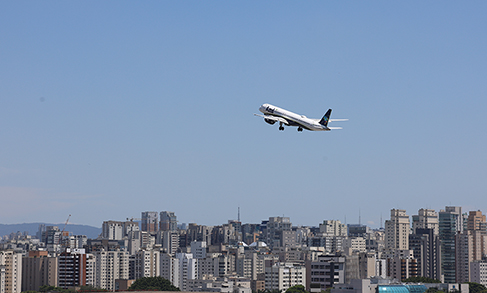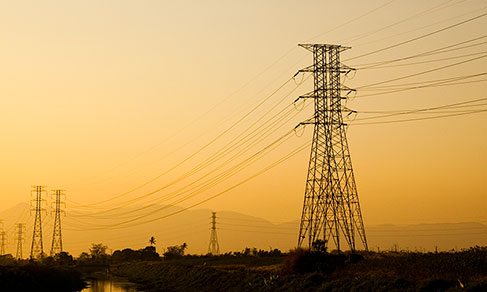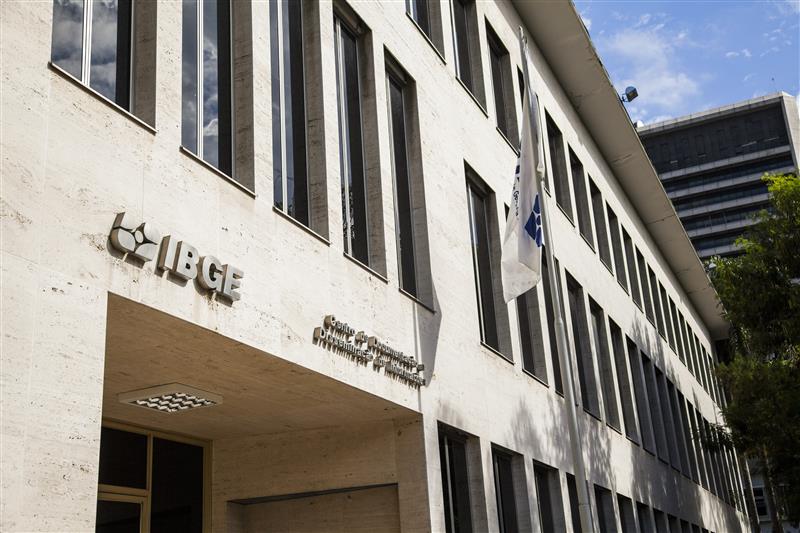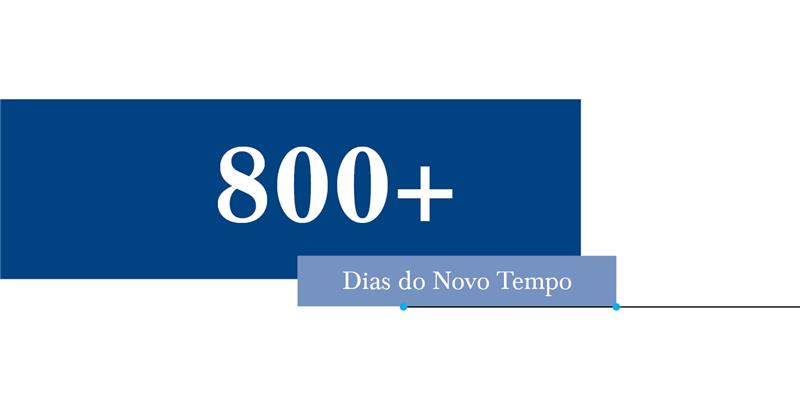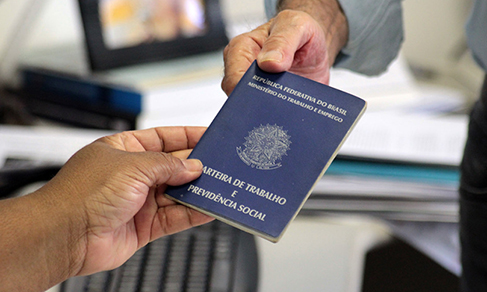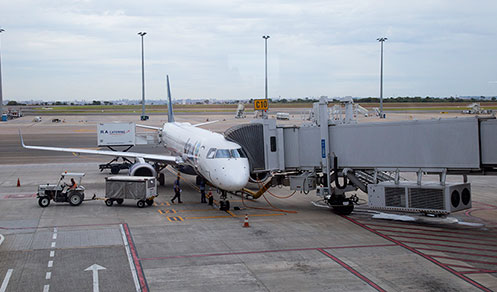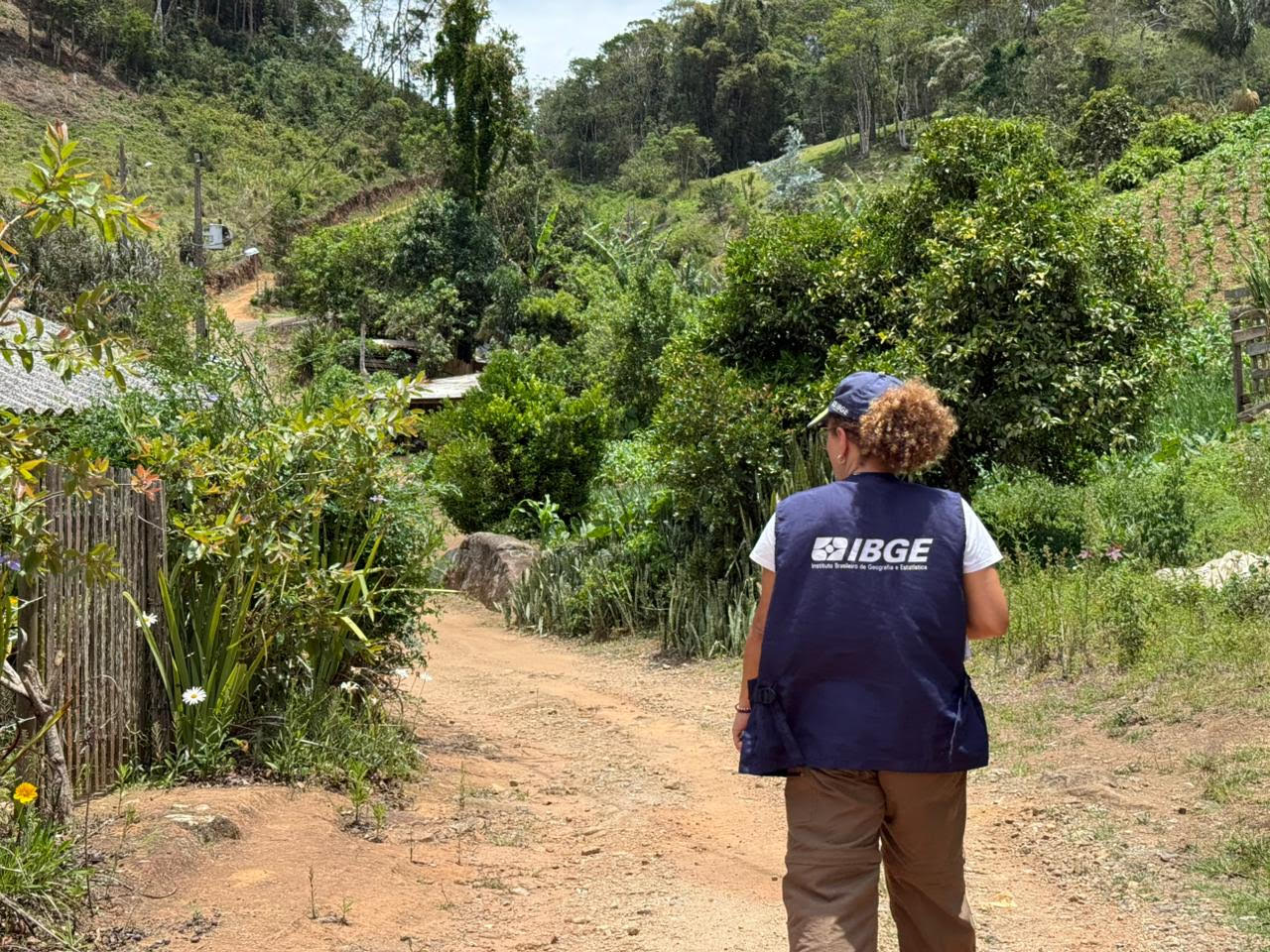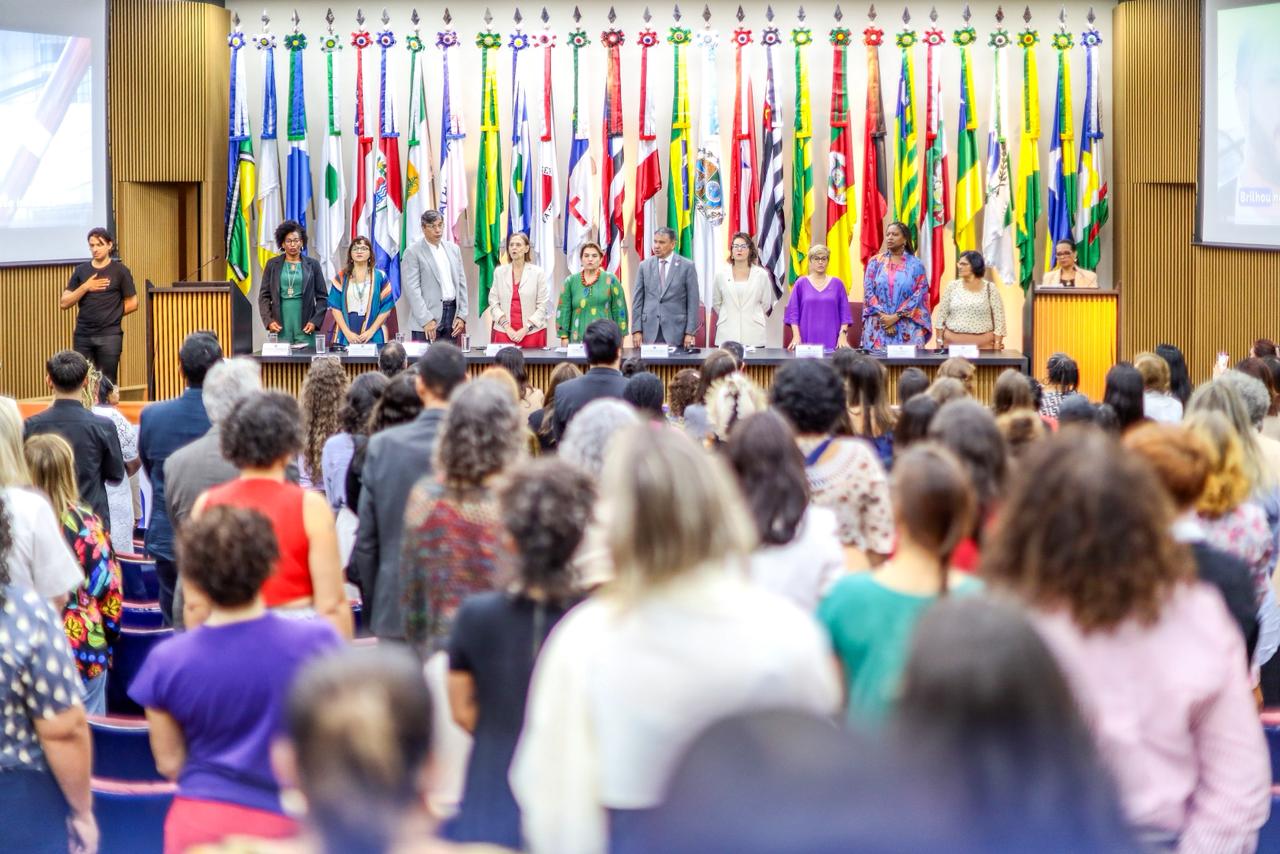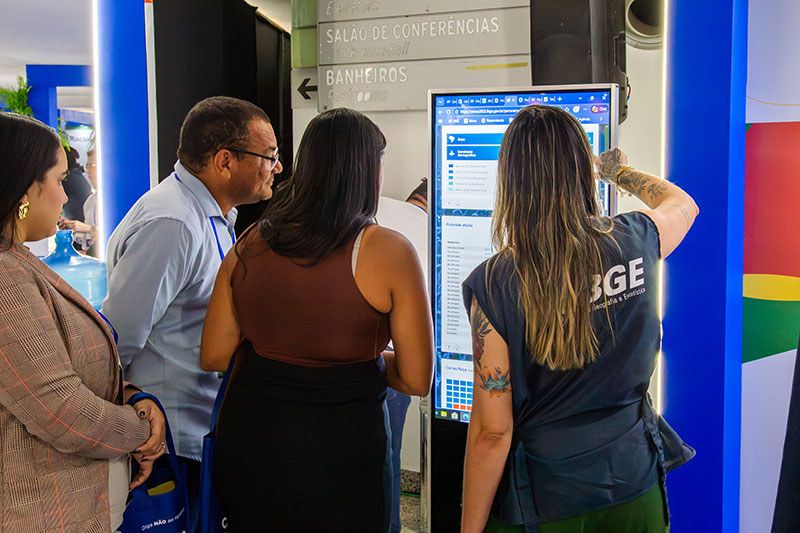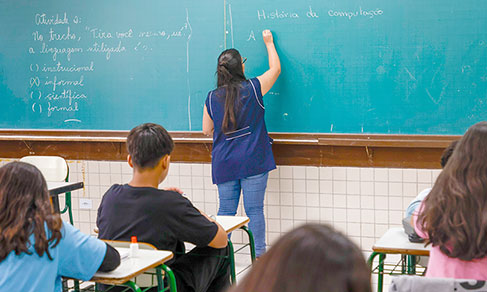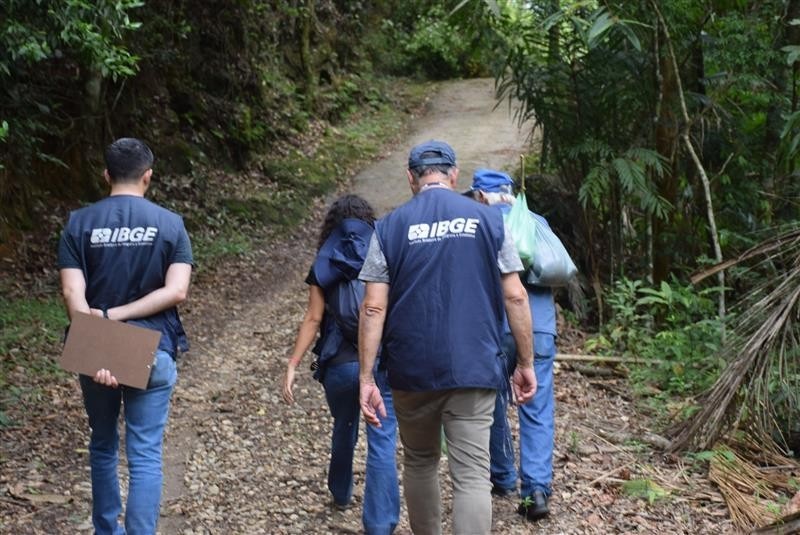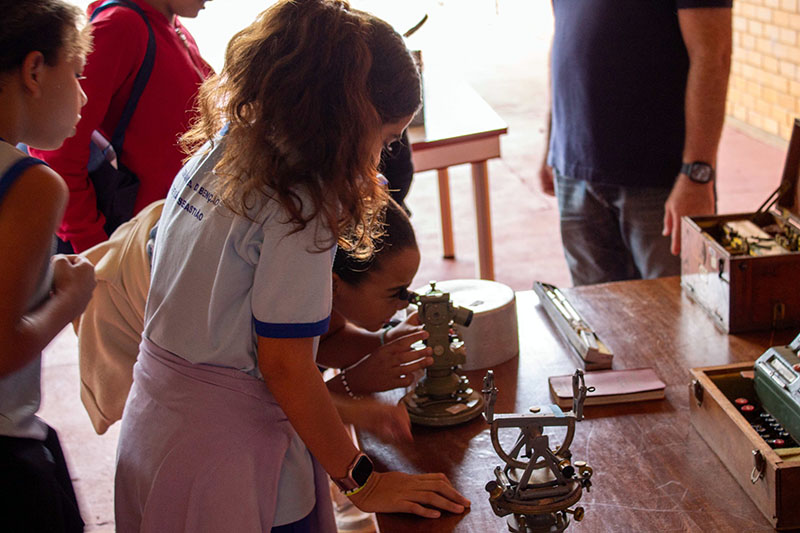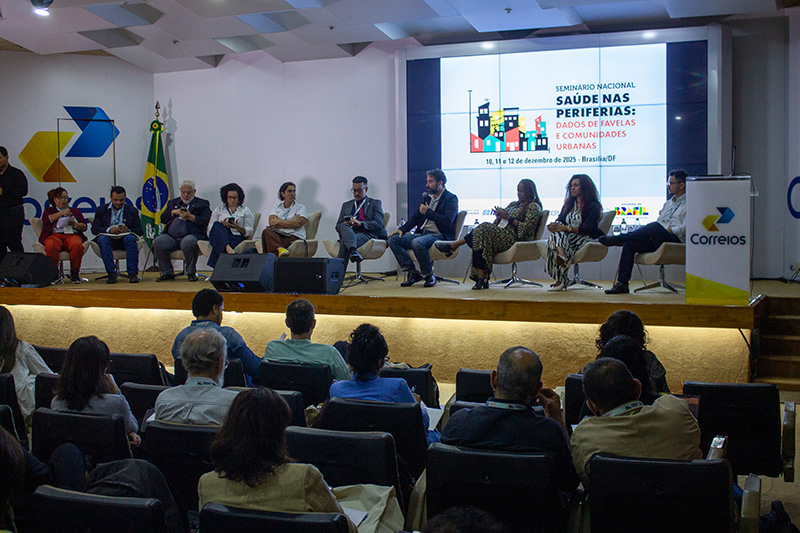PEERS
With support of RS Governement, IBGE launches Special Survey on the Rio Grande do Sul Floods in 2024
September 17, 2025 06h09 PM | Last Updated: September 18, 2025 11h12 AM

On September 15th, at an event at the Rio Grande do Sul State Finance Department in Porto Alegre, the IBGE launched the Special Survey on the Rio Grande do Sul Floods in 2024 (PEERS). In partnership with the State Government, the launch took place on the same day as the start of data collection, which will run until December 19th, exclusively by phone (21) 2142-0123. Visit the PEERS website for more information. Watch the event on Digital IBGE.
The launch event, in the state capital, was attended by IBGE President Marcio Pochmann (via video), and by Pricilla Santana, State Finance Secretary of Rio Grande do Sul, representing the Governor of Rio Grande do Sul, Eduardo Leite. Also participating in the event were the Director of Information Technology, Marcos Mazoni; the Deputy Director of Surveys, Vladimir Miranda; Maria Luísa Pimenta, Environmental Coordinator of the Directorate of Geosciences; Juliana Paiva, Deputy Manager of Social Studies and Surveys of the Directorate of Surveys; and Luís Eduardo Puchalski, Acting Superintendent of the IBGE in Rio Grande do Sul.
The survey is experimental in nature and aims at understanding how people were affected at the time of the floods and, in the second phase, one year later, how their lives are. The results of the PEERS, conducted for the first time, could serve as a basis for preventing new climate tragedies, both in Rio Grande do Sul and throughout Brazil. The results are expected to be released in the first half of 2026.
Residents of more than 30,000 households in 133 municipalities in Rio Grande do Sul will be contacted by data collection agents from the IBGE's Computer-Assisted Telephone Interview Center (CETAC). This is the Institute's first household survey conducted entirely by telephone.
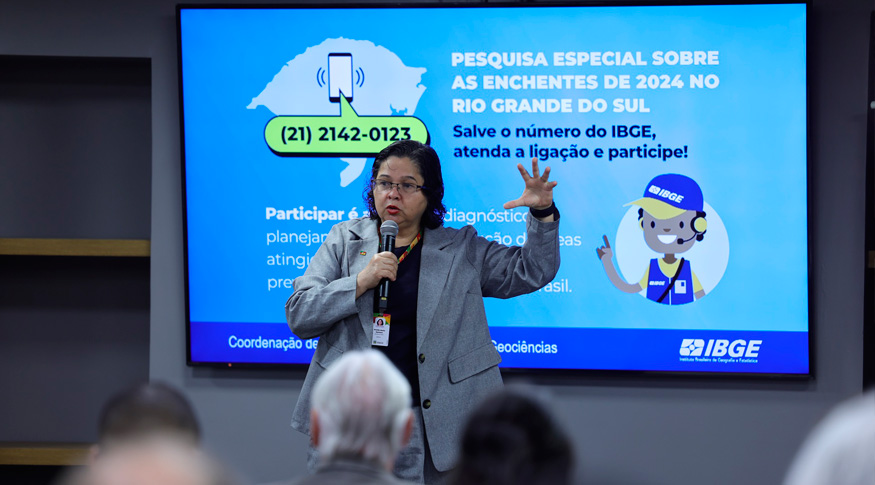
The RS State Treasury Secretary, Pricilla Santana, recalled the impact of the floods and made an appeal: "I would like to ask our countrymen and countrywomen to answer and receive well the IBGE, because, based on this source of collected data, we are thinking of the future in order to make Rio Grande do Sul even greater and more and more resilient”. "The question to be asked are very simple, but people’s answers will be decisive”, added Ms. Santana.
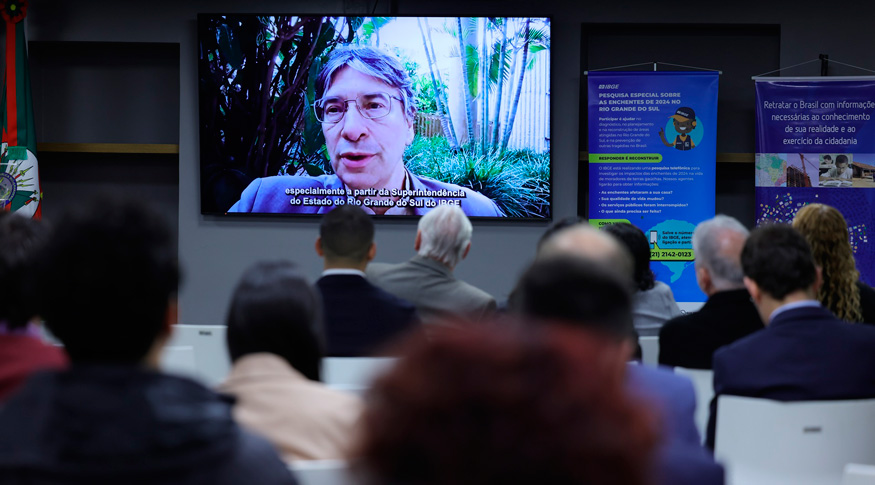
IBGE President Marcio Pochmann, born in Rio Grande do Sul, participated via video. "The survey provides elements that allow us to better understand this climate phenomenon and its consequences and, at the same time, generate information to better adapt public policies to climate change, a reality in which information is increasingly crucial in a data-driven society," Mr. Pochmann stated.
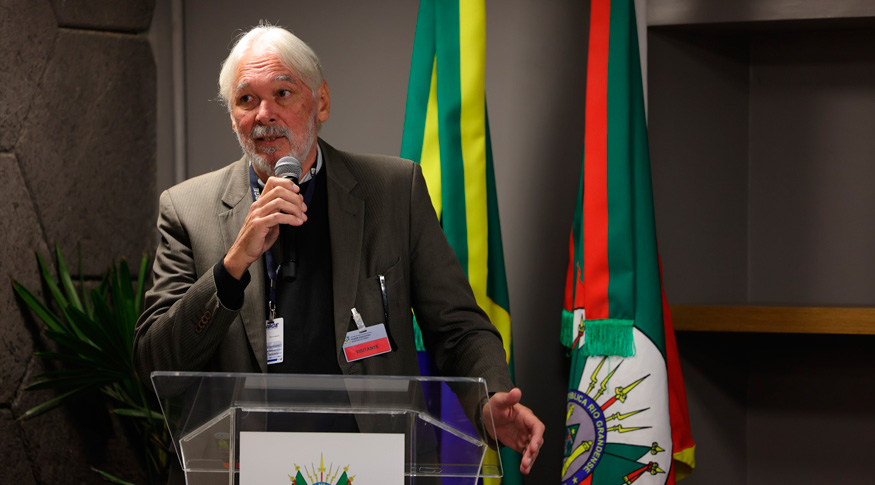
Marcos Mazoni, IBGE's IT Director, also from Rio Grande do Sul, emphasized that one of the main objectives of PEERS is to find information and data so that policymakers can develop more appropriate public policies to solve the problems they encounter, improving the prevention of climate emergencies. "Portraying Brazil aims to assist in the formulation of public policies for all policymakers, not only to ensure better allocation of resources, but also greater effectiveness and efficiency, improving people's quality of life," Mr. Mazoni argued.
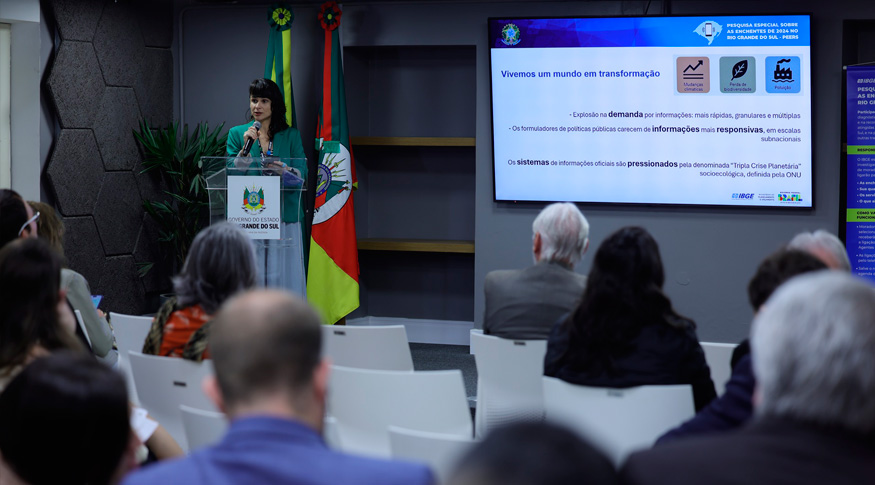
Maria Luísa Pimenta, Environmental Coordinator of the Directorate of Geosciences, presented the priority public policies for disaster risk reduction and climate change adaptation, as well as Brazil's international commitments in this area. According to Pimenta, risk governance can be improved through a more comprehensive database. "If we underestimate the damage, we leave victims without support. And if we overestimate, we risk wasting scarce resources. This survey, therefore, is not just a snapshot of an event; it is also a tool for more resilient governance and socio-environmental justice," she argued.
Juliana Paiva, Deputy Manager of Social Studies and Research at IBGE, presented the survey to the press and emphasized that PEERS's ultimate goal is to give a voice to flood victims. "The public needs to be heard, and memories need to be reactivated. We need to hear from people what happened. We have a lot of numbers, a lot of data, but the public still hasn't spoken about the tragedy," she stated.
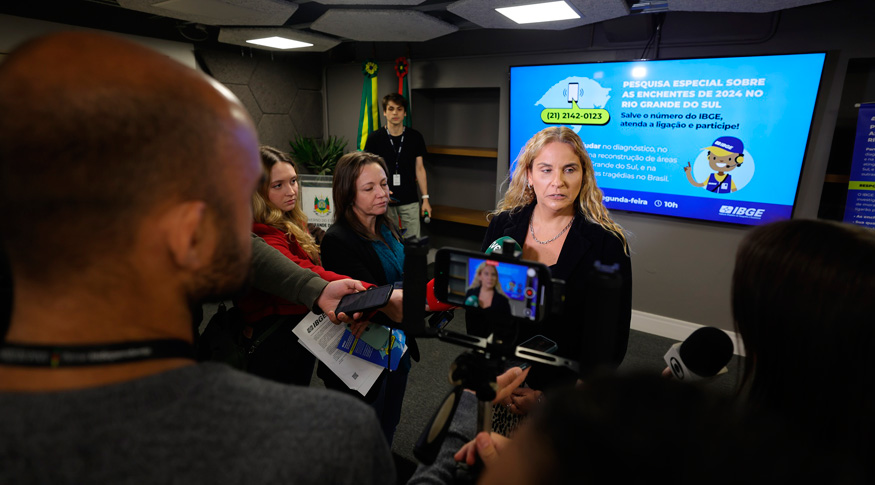
IBGE's Deputy Director of Surveys, Vladimir Miranda, stated that extreme events require swift action, the development of new protocols, and the development of new tools. "The information obtained through PEERS will certainly return to the population to improve everyone's lives and to enable public policymakers to base their decisions on increasingly robust data," he emphasized.
"The biggest challenge of this survey is getting people to answer the phone, to answer the calls that IBGE is making. We need people to answer the calls so we can obtain these important results," said Luís Eduardo Puchalski, IBGE's acting superintendent in Rio Grande do Sul.
A tent was set up outside the State Finance Department building to promote PEERS to the public. Public servants handed out pamphlets to pedestrians and answered questions. A banner was also installed facing Mauá Avenue, a major thoroughfare in downtown Porto Alegre, in an area that was completely flooded during the 2024 floods.

Special Survey on the Rio Grande do Sul Floods in 2024 (PEERS)
The 2024 floods in Rio Grande do Sul affected different socioeconomic segments of the population. The survey was based on recommendations from the United Nations Statistical Commission and the World Bank, as well as international experiences with other climate events.
The survey is the result of IBGE's participation in the task force created by the Presidency of the Republic to assist Rio Grande do Sul after the disaster, which included the creation of Singed Lab, IBGE's innovation laboratory.
The objectives of PEERS are to further understand the damage suffered during the floods, the socioeconomic characteristics during the floods, and the degree of severity experienced, in addition to providing insight into the type of support demanded and received. The objectives also include understanding the living conditions of residents in municipalities affected in 2024 and the situation one year after the floods.
To conduct the data collection, Rio Grande do Sul was divided into seven regions. In Phase 1, agents will call informants located in Alvorada, Arroio dos Ratos, Barra do Ribeiro, Cachoeirinha, Canoas, Eldorado do Sul, Esteio, Gravataí, Guaíba, Nova Santa Rita, Porto Alegre, and Sapucaia do Sul. Residents of a different area will receive calls each period, according to the schedule below:
- September 15-26: Alvorada, Arroio dos Ratos, Barra do Ribeiro, Cachoeirinha, Canoas, Eldorado do Sul, Esteio, Gravataí, Guaíba, Nova Santa Rita, Porto Alegre, and Sapucaia do Sul;
- October 29-10: Novo Hamburgo, Taquara, Montenegro, Charqueadas (23 municipalities);
- October 13-17: Passo Fundo, Carazinho, Frederico Westphalen, Marau, Erechim, Tapejara, Soledade, Nonoai, Três Passos, Ijuí, Palmeira das Missões, Cruz Alta (25 municipalities);
- October 20-31: Santa Cruz do Sul, Lajeado, Sobradinho, Encantado (39 municipalities);
- November 3-7: Pelotas, Camaquã (6 municipalities);
- November 10-14: Caxias do Sul, Bento Gonçalves, Nova Prata (11 municipalities);
- November 17-28: Santa Maria, São Gabriel, Uruguaiana, Cachoeira do Sul (17 municipalities);
- December 1 to 19: All regions
How to confirm the identity of the data collection agent
One hundred data collection agents from the IBGE's Computer-Assisted Telephone Interview Center (CETAC) will conduct interviews via the telephone number (21) 2142-0123. Respondents can confirm the identity of the agent by calling 0800 721 8181 or by emailing peers@ibge.gov.br. Through these two channels, selected respondents can also schedule a date and time for the interview. Simply provide your name and the address where you will receive the survey letter.
As soon as the resident answers the call at (21) 2142-0123, the IBGE agent will confirm the person's identity and verify whether or not they meet the criteria for responding. The respondent must have been present at some point in the household during the flood period, between April and May 2024, and be at least 14 years old.


